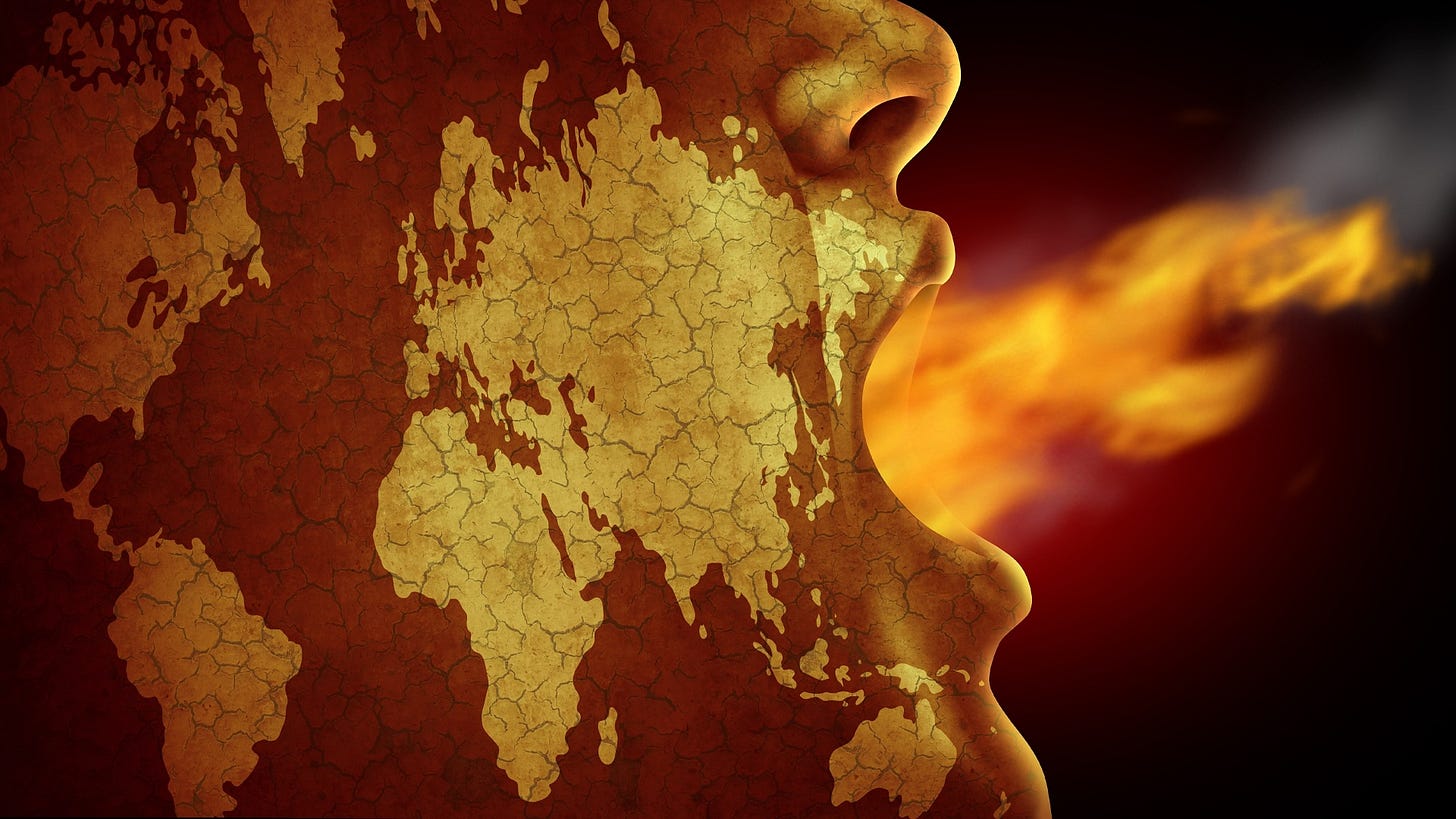14.8% of Americans do not believe in climate change. Recently, a study mapping a 485-million-year history of Earth’s temperature and CO2 levels has been misinterpreted by some who downplay urgent climate concerns. Their argument suggests that, since the Earth has experienced much higher temperatures and CO2 concentrations in the past, the current rise of a few degrees won’t significantly affect us - and that climate concerns are being over exaggerated
What if climate change was, in fact, a “hoax”? What if all of the climate science developed in recent decades was a fraud? Could we then just generally exhale and continue humanity's current economic trajectory unimpeded?
Exploring these questions in today’s Frankly, I emphasize the limited, ‘narrow boundary’ perspective of downplaying the urgency of climate change. A more nuanced understanding of ecology reveals that the long-term stability of our planet depends on numerous environmental tipping points, with climate change being just one of them. Even if climate change was a “hoax”, we are still causing accelerating harm to the life support systems of Earth , pushing the biosphere beyond its limits in a way which will profoundly impact our future, even our near term future.
In case you missed it…
This week, I was joined by social philosopher Roman Krznaric to discuss ways we might govern or lead during moments of crisis, using the lens of former and current civilizations.
If you appreciate The Great Simplification podcast…
Be sure to leave a review on your preferred podcast platform! Leaving reviews helps the podcast grow, which helps spread awareness of our systemic situation from experts in ecology, energy, policy, economics, technology, and community building so that we can better understand - and respond to - the challenges of the coming decade.
The Great Simplification podcast is produced by The Institute for the Study of Energy and Our Future (ISEOF), a 501(c)(3) organization. We want to keep all content completely free to view globally and without ads. If you’d like to support ISEOF and it’s content via donation, please use the link below.






Excellent - thank you Nate! You have neatly shown how the "climate crisis" is crowding out other vital issues you remind us of. You and your subscribers may be interested in Tushar Choudhary's book: "The Climate Misinformation Crisis: How to move past the mistruths to a smarter energy future". It's not the best book from the point of view of flow of English, but the author makes a sincere effort to steer a path between misinformation from both climate activists and sceptics.
Climate change, whatever it's supposed to mean, if it exists at all and if it's anthropogenic, is NOT THE PROBLEM faced by humankind and, by extension, life on Earth. In a broader sense, adverse - in the sense of what would be optimal for life to proliferate - changes in environmental conditions are the consequence of human behavioral patterns, specifically the unbridled cycle of extraction, processing, production, consumption, and wastage, facilitated by easily obtainable energy.
Humans are behaving like any other species that happens on a bonanza of resources, devouring ferociously everything they can put their hands on. We're destroying the environment left and right in a mad quest for yet another product, yet another fucking sale, yet another fix of dopamine from getting some useless piece of shit gadget that will go to the landfill in a matter of weeks, while we're already craving some other useless piece of shit gadget. That's the gluttonously sick consumerist civilization of the past century, which had been in the making for the preceding few hundred years.
We're mainly witnessing a psychological phenomenon, exacerbated by the fact that the human intellect is unfortunately developed to a point where it can inflict large-scale damage. That's not to say that humans are smart. They're in fact fucking stupid, much less intelligent than most other species, for other critters don't have the general habit of doing things that are detrimental to them, like shitting in the place where they live so to speak, overindulging, and so on. Anyway, the chances that people will change their behavioral patterns are just about nil, as evidenced by historical experience and people's insane comportment that can be observed in real time today.
Thus, things will simply have to run their course. Hydrocarbons will be depleted, the various Ponzi schemes fraudsters have concocted to run this whole circus will collapse, people will scratch their eyes and cut their throats in fighting for the last loaf of bread, nations will launch wars against one another, and so on.
Some people will hopefully be able to squeeze through the cracks and survive.
What will happen next?
Luckily, the surviving humans won't have that abundant hydrocarbon energy at their disposal, which means that they'll be forced to live more closely in harmony with nature, not unlike animals. There is no doubt that there will be as many assholes in the future as there are now and as there always have been, bent on exploiting others and their environment. But the damage they're able to inflict will be limited.
In a broader historical sense, the era of personal freedom combined with cheap energy and technological development has been a total disaster. Gluttony got the better of people and brought them to the brink of destruction. We are selfish greedy bastards, let's face it. Despite being a total atheist, I have to say that people would be much better off if they believed in some god and feared his wrath, should they fuck around. If we're allowed to be our own moral guide, we fail miserably.
But hey, maybe things won't happen like this. With any luck, one of the idiots at the helm will push the red button and put us out of our misery once and for all.